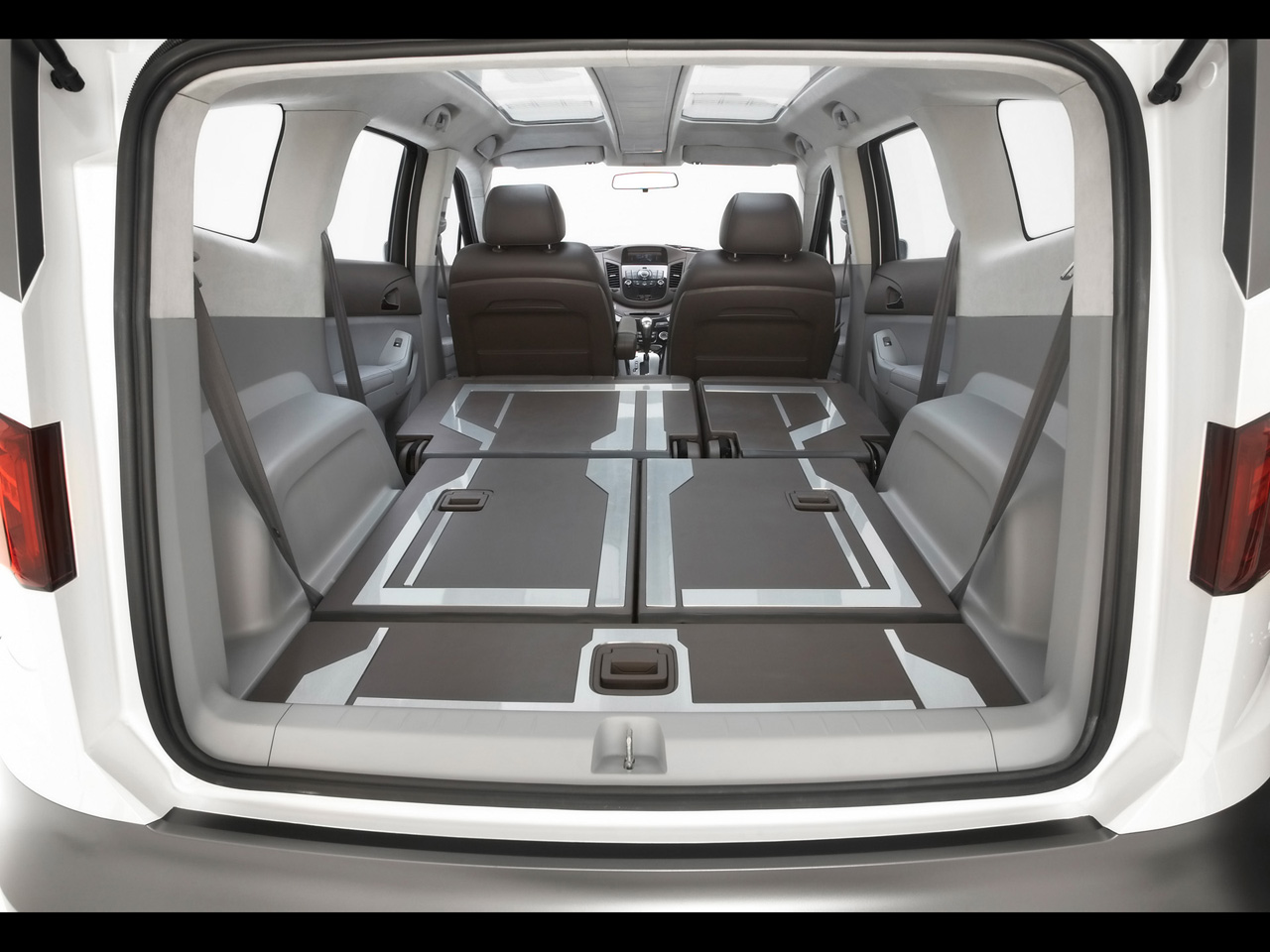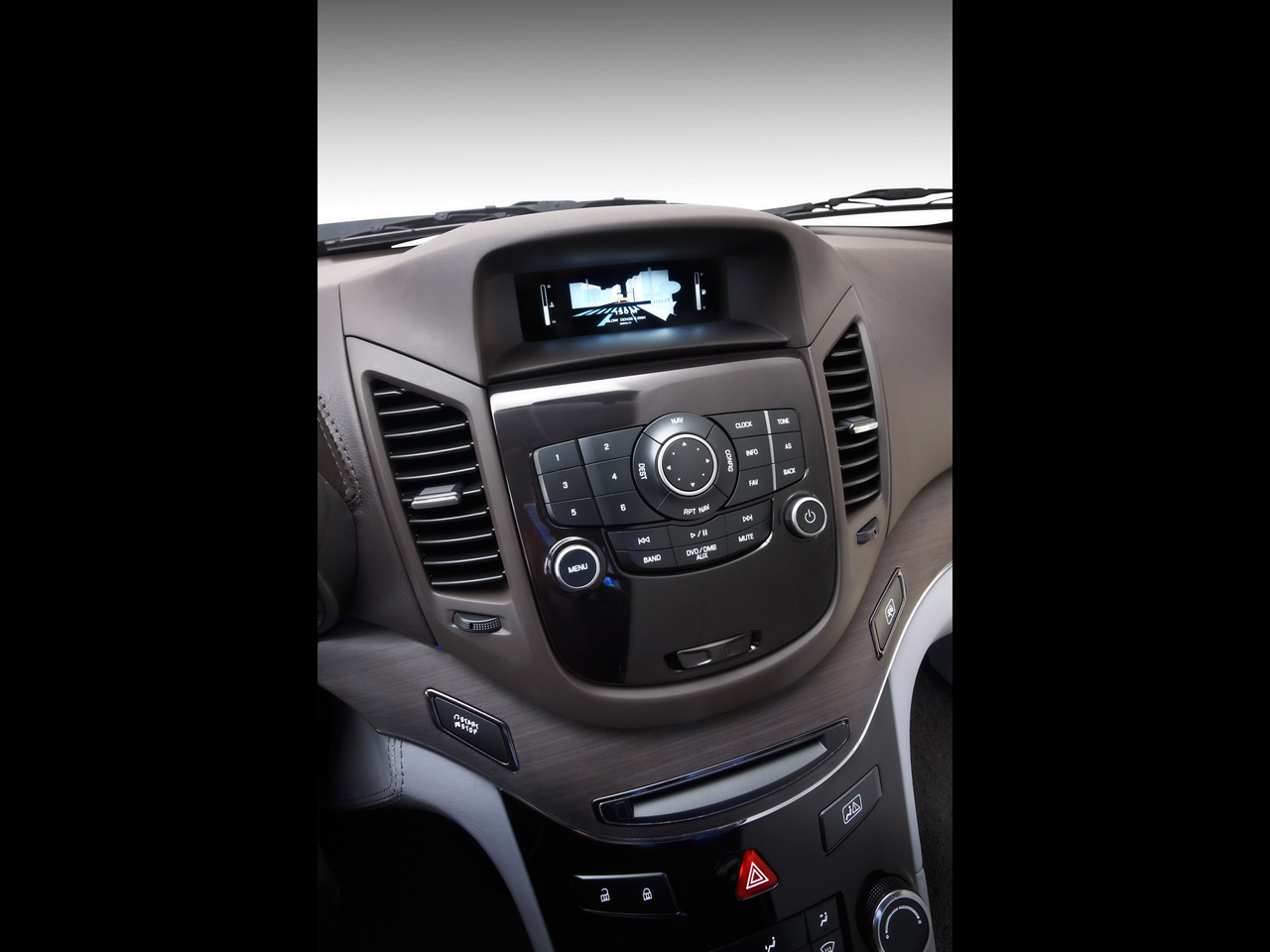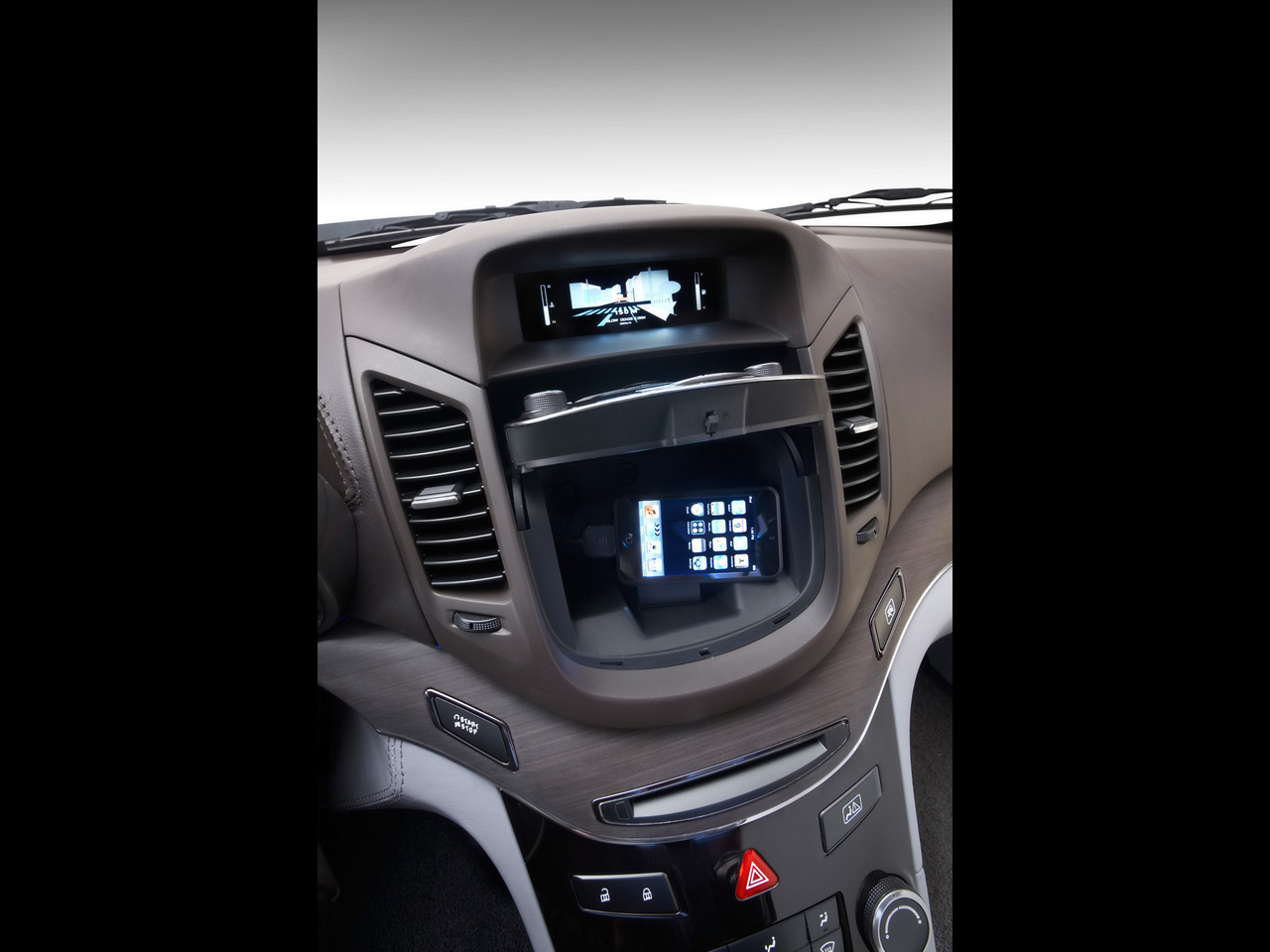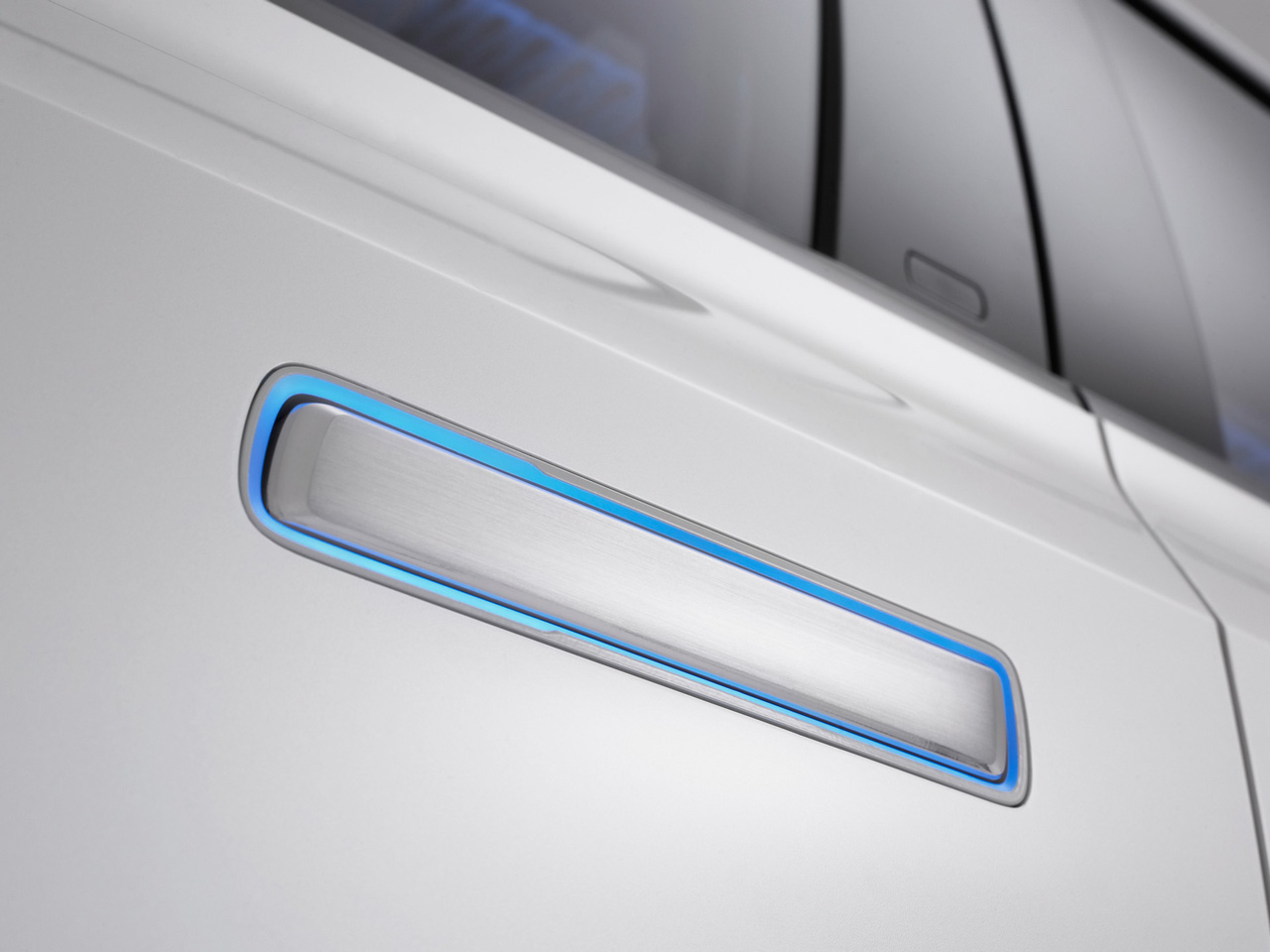2008 Chevrolet Orlando Show Car
|
Price |
-- |
Production |
-- | ||
|
Engine |
2 liter diesel inline-4 |
Weight |
-- | ||
|
Aspiration |
turbocharger |
Torque |
236 lb-ft | ||
|
HP |
150 hp |
HP/Weight |
-- | ||
|
HP/Liter |
75 hp per liter |
1/4 mile |
-- | ||
|
0-62 mph |
-- |
Top Speed |
-- |
(from General Motors Press Release) Chevrolet Orlando Show Car Signals Entry into New Segment for the Brand
The Orlando show car is
a clear indication that Chevrolet is considering an expansion to its
portfolio with a seven-seat multi-purpose vehicle (MPV) with
distinctive sport-utility-like design, adaptable seating and
impressive interior space.
Based on the recently announced all-new Cruze compact sedan, the
Orlando show car carries Chevrolet’s signature design language into
a new vehicle segment. It explores the potential of combining the
versatility attributes of a sport utility, a family van and a wagon
in a single execution.
Chevrolet Orlando cuts a distinctive silhouette, replacing
conventional monocab proportions with a more defined contrast
between the hood and windshield lines. With flared fenders instead
of a flat side-body, Orlando has a muscular stance that gives it the
appearance of a sport utility vehicle, yet it offers dynamic ride
and handling, excellent fuel efficiency and easy entry thanks to its
car-based architecture.
Inside, the five-door Orlando is designed to meet the needs of
families and those who need plenty of seating capacity with
adaptable, theater-style seating in three rows that comfortably
accommodate up to seven occupants. Whenever load carrying becomes a
priority, the spacious cabin can be quickly transformed into a large
cargo area. A generous 2,760 mm wheelbase and wide front and rear
tracks provide Orlando with outstanding interior roominess.
Chevrolet's latest-generation, 2.0-liter turbo diesel, developing
150 hp/110 kW and 320 Nm of torque, provides a powerful and
efficient powertrain.
Strong Design Statement
Orlando takes
Chevrolet's design into the multi-purpose vehicle segment. The front
features the brand's signature twin-port grille and the large,
sweeping headlamp housings seen on the Cruze. It also incorporates a
concave shoulder line that extends along the body into the
wraparound tail lights, another design feature from the Cruze that
will distinguish future-generation Chevrolet products.
This distinctive look is complemented by the flared fender lines,
defining a 'wheels-out/body-in' stance that visually lowers the
higher roof line. The ice-blue theme for instrument illumination is
also used on the exterior of Orlando in the laser-etched surfacing
of the headlamps, tail lights and full-length glass roof.
Inside, Orlando features Chevrolet's 'dual cockpit' design theme,
with grained, dark grey accents extending outwards either side of
the center stack.
The cabin is designed to meet the demands of families and those who
need plenty of seating capacity with infotainment options and
navigation. Overhead, a storage compartment extends along the center
of the roof, providing useful stowage space for rear passengers.
Design details include a center stack recess to hold a personal
device/MP3 player when it is connected to the USB or Aux ports.
Further storage space is provided inside the floor console, the
second row center arm-rest and under the floor in the rear.
The raised roof enables a theater-style seating layout. It provides
all occupants, particularly children, with an improved view inside
and outside the vehicle, while enabling conversation between all
those on board.
Adaptable Interior
A generous 2,760 mm
wheelbase, 75 mm longer than that of the new Cruze sedan, and front
and rear tracks 40 mm and 30 mm wider, provide Orlando with seating
and cargo-carrying space that is among best-in-class for compact
MPVs.
It is a true seven-seater, with second and third row legroom of 950
mm and 753 mm, respectively. The reverse faces of these seat backs
are covered in a tough, metal finish and can be folded completely
flat for easy loading. A range of occupant and load-carrying
configurations is provided by 60/40 second-row and 50/50 third-row
split folding seating.
"We focused on giving Orlando a strong, robust appearance," says
Designer Seungwoo Kim. "It draws on Chevrolet's tradition for
honest, simple design, while at the same time extending our new
design language into the compact multi-purpose vehicle segment."



